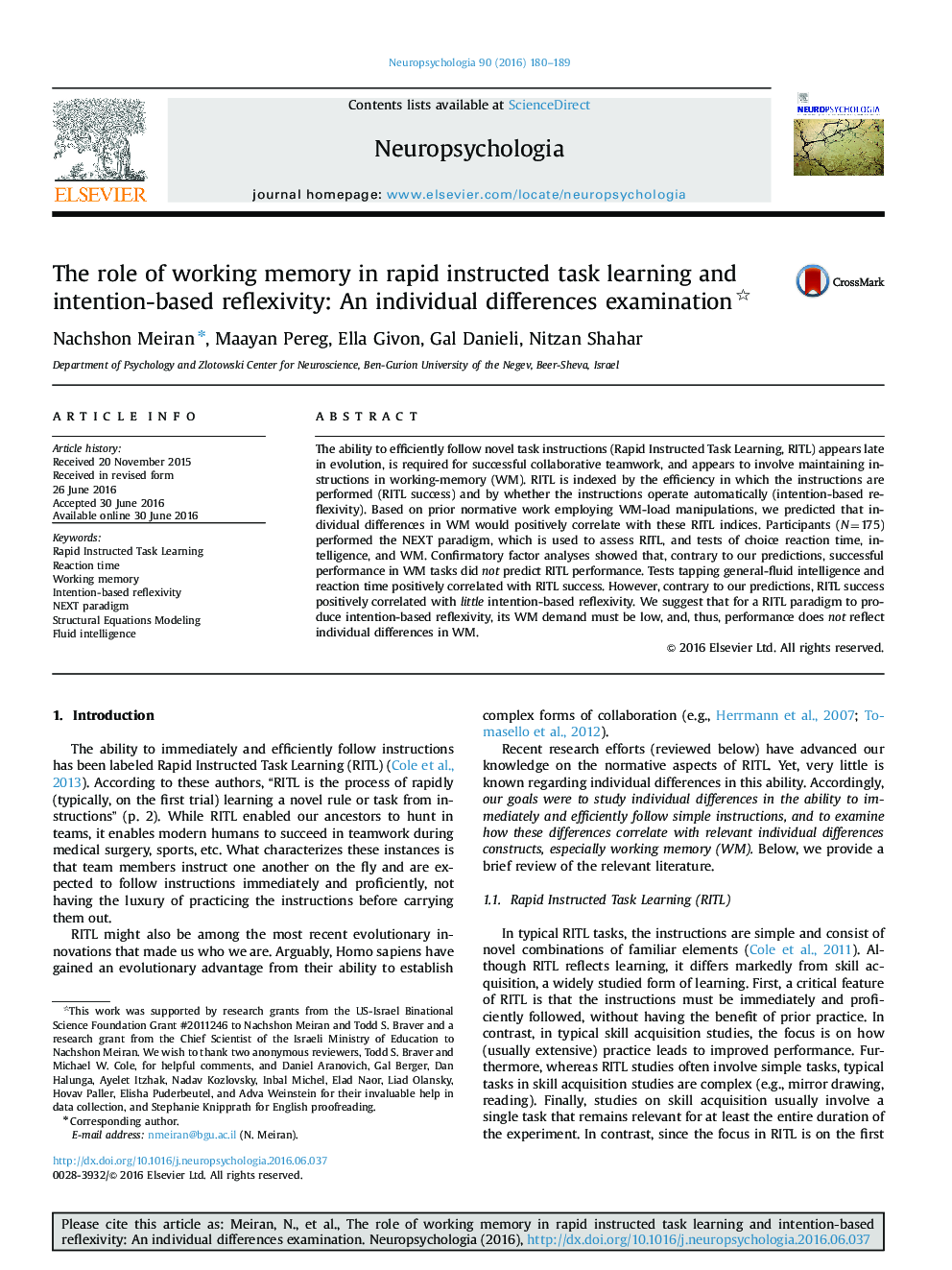| Article ID | Journal | Published Year | Pages | File Type |
|---|---|---|---|---|
| 5045378 | Neuropsychologia | 2016 | 10 Pages |
â¢Following instructions rapidly and efficiently is essential for collaboration.â¢This ability is reflected is efficiency (speed and accuracy) and automaticity.â¢Across individuals, efficiency correlated positively with speed and intelligence.â¢Surprisingly, efficiency/automaticity did not correlate with working-memory.
The ability to efficiently follow novel task instructions (Rapid Instructed Task Learning, RITL) appears late in evolution, is required for successful collaborative teamwork, and appears to involve maintaining instructions in working-memory (WM). RITL is indexed by the efficiency in which the instructions are performed (RITL success) and by whether the instructions operate automatically (intention-based reflexivity). Based on prior normative work employing WM-load manipulations, we predicted that individual differences in WM would positively correlate with these RITL indices. Participants (N=175) performed the NEXT paradigm, which is used to assess RITL, and tests of choice reaction time, intelligence, and WM. Confirmatory factor analyses showed that, contrary to our predictions, successful performance in WM tasks did not predict RITL performance. Tests tapping general-fluid intelligence and reaction time positively correlated with RITL success. However, contrary to our predictions, RITL success positively correlated with little intention-based reflexivity. We suggest that for a RITL paradigm to produce intention-based reflexivity, its WM demand must be low, and, thus, performance does not reflect individual differences in WM.
